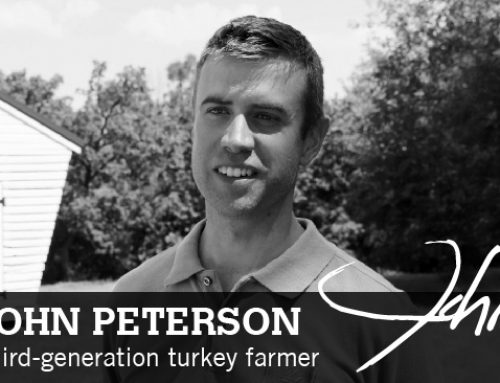In the grand scheme of things, the world doesn’t really need our Ferndale Market turkey. The flocks we grow in a year are a rounding error in the billions of pounds of turkey grown annually, much of it by global meat companies. The early pandemic processing plant worries showed many consumers just how concentrated the control in the meat world has become, and it’s not just true for turkeys. Any chicken, pig, or beef farmer would likely tell you the same. We’ve all heard the often-true agricultural mantra “that the big get bigger and the rest get out.”
We spend a lot of time talking about the well-defined and visible differences with our Ferndale turkeys: they’re grown free-range and raised without antibiotics. And while these are significant differences – and sources of pride – for us, the difference in our model of farming might be the real difference-maker. One of my local food heroes is Lucie Amundsen, who founded Locally Laid Egg Company with her husband. Lucie has been a tremendous advocate for the concept of “ag in the middle.” This “middle ag” functions at a scale where it can multiply the impacts of farm practices, while retaining farmer independence and autonomy. We hear a lot about “big ag” and we’ve seen a resurgence in new farmers and smaller-scale farmer’s market growers, but the few remaining in “middle ag” may need to be on an endangered species list.
Depending on which meat you look at, the five largest companies today control over half the meat America, and they are all really good at one thing: lowering costs. But low costs come with a price, whether it’s low wages for farm workers, shrinking rural communities, or less local farm control. I’m not going to pretend that our Ferndale Market turkey is going to save the world (we’ll try!), but we are fiercely proud to farm at a scale where we can provide stable careers for our dedicated staff. We can partner with fellow independent farmers and reward them fairly for their care and time. Sure, we may not have a low-cost-above-all-else model, because we are intentional about making all our turkey products at independent, Minnesota meat processors and smokehouses. And we do what we can to re-invest in our communities, farms, and teams, so we can all be here for the long haul, not just the next quarterly report.
It’s a different model in a food world that’s increasingly similar. In this case, “the middle” is right where we want to be. Thanks for seeing the difference.


Leave A Comment